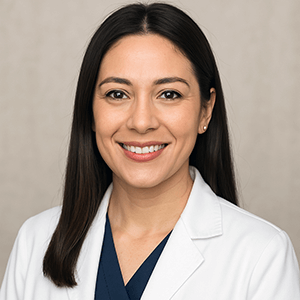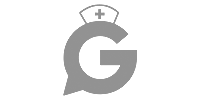Medical-Surgical Nursing, often referred to as Med-Surg, is a cornerstone of the nursing profession. It encompasses a broad range of knowledge and skills, making it a critical area of focus for the NCLEX exam. This article will delve into what you need to know about Med-Surg nursing for the NCLEX, followed by 14 carefully curated Med-Surg NCLEX questions complete with in-depth explanations.
💡 Ultimate NCLEX Study Mega Guide
Your must‑have resource to NCLEX cheat sheets, mnemonics & key topics - all in one place.
Understanding Medical-Surgical Nursing for the NCLEX
Medical-Surgical Nursing is the foundation of nursing practice. It involves the care of adult patients with a variety of medical issues or who are preparing for/recovering from surgery. The NCLEX exam tests your ability to apply knowledge from this field to ensure safe and effective patient care.
Key Areas of Focus in Med-Surg Nursing
- Patient Assessment: Understanding how to perform comprehensive assessments, including physical exams and interpreting diagnostic tests.
- Pathophysiology: Knowledge of diseases and conditions, their progression, and how they affect the body.
- Pharmacology: Familiarity with medications, their side effects, interactions, and proper administration.
- Nursing Interventions: Implementing appropriate interventions based on patient needs and conditions.
- Patient Education: Teaching patients about their conditions, treatments, and lifestyle modifications.
- Critical Thinking: Applying clinical judgment to make informed decisions in patient care.
14 Med-Surg NCLEX Questions with In-Depth Explanations
Question 1
A patient with chronic obstructive pulmonary disease (COPD) is admitted with an exacerbation. Which of the following interventions should the nurse implement first?
A. Administer bronchodilators as prescribed.
B. Encourage the patient to increase fluid intake.
C. Teach the patient pursed-lip breathing techniques.
D. Place the patient in a high Fowler's position.
Explanation: The correct answer is D. Placing the patient in a high Fowler's position helps to improve lung expansion and ease breathing. While the other interventions are important, positioning the patient to facilitate breathing should be the first priority.
Question 2
A patient is scheduled for a colonoscopy. Which of the following is the most important instruction for the nurse to give the patient?
A. Avoid eating solid foods 24 hours before the procedure.
B. Take a laxative the night before the procedure.
C. Drink clear liquids the day before the procedure.
D. Arrange for someone to drive you home after the procedure.
Explanation: The correct answer is D. Colonoscopy often involves sedation, so it is crucial for the patient to have someone to drive them home. While the other instructions are also important, ensuring the patient's safety post-procedure is the priority.
Question 3
A patient with diabetes mellitus is experiencing hypoglycemia. Which of the following symptoms would the nurse expect to find?
A. Polyuria
B. Polydipsia
C. Diaphoresis
D. Weight loss
Explanation: The correct answer is C. Diaphoresis (sweating) is a common symptom of hypoglycemia. Polyuria and polydipsia are symptoms of hyperglycemia, and weight loss is typically associated with uncontrolled diabetes over a longer period.
📘 25 NCLEX Study Tips That Actually Work
Struggling to stay focused or overwhelmed by where to begin? This guide gives you 25 proven NCLEX study strategies—including case studies, mnemonics, prep schedules, and more.
🚀 Read the Full GuideQuestion 4
A patient with heart failure is prescribed furosemide (Lasix). Which of the following laboratory values should the nurse monitor closely?
A. Sodium
B. Potassium
C. Calcium
D. Magnesium
Explanation: The correct answer is B. Furosemide is a loop diuretic that can cause potassium loss, leading to hypokalemia. Monitoring potassium levels is essential to prevent complications.
Question 5
A patient is receiving a blood transfusion and begins to exhibit signs of an allergic reaction. What should the nurse do first?
A. Slow the infusion rate.
B. Administer antihistamines.
C. Stop the transfusion.
D. Notify the physician.
Explanation: The correct answer is C. The first action should be to stop the transfusion to prevent further exposure to the allergen. The nurse should then notify the physician and administer antihistamines as prescribed.
Question 6
A patient with a history of hypertension is prescribed a beta-blocker. Which of the following is a common side effect of beta-blockers?
A. Tachycardia
B. Bradycardia
C. Hyperglycemia
D. Hypokalemia
Explanation: The correct answer is B. Beta-blockers commonly cause bradycardia (slow heart rate). They work by blocking the effects of adrenaline on the heart, reducing heart rate and blood pressure.
Question 7
A patient is diagnosed with deep vein thrombosis (DVT). Which of the following interventions should the nurse implement?
A. Apply warm compresses to the affected area.
B. Encourage ambulation.
C. Administer anticoagulants as prescribed.
D. Massage the affected limb.
Explanation: The correct answer is C. Administering anticoagulants is crucial to prevent the clot from growing and to reduce the risk of pulmonary embolism. Ambulation and massage are contraindicated as they can dislodge the clot.
Question 8
A patient with chronic kidney disease is experiencing hyperkalemia. Which of the following medications might the nurse expect to administer?
A. Calcium gluconate
B. Sodium bicarbonate
C. Insulin and glucose
D. All of the above
Explanation: The correct answer is D. All of these medications can be used to treat hyperkalemia. Calcium gluconate stabilizes the heart, sodium bicarbonate shifts potassium into cells, and insulin with glucose also helps move potassium into cells.
Question 9
A patient with cirrhosis is at risk for hepatic encephalopathy. Which of the following symptoms should the nurse monitor for?
A. Jaundice
B. Ascites
C. Asterixis
D. Pruritus
Explanation: The correct answer is C. Asterixis (flapping tremor) is a key sign of hepatic encephalopathy. While jaundice and ascites are associated with cirrhosis, they are not specific to hepatic encephalopathy.
Question 10
A patient with a peptic ulcer is prescribed omeprazole. What is the primary action of this medication?
A. Neutralizes stomach acid
B. Coats the ulcer surface
C. Reduces stomach acid production
D. Increases gastric motility
Explanation: The correct answer is C. Omeprazole is a proton pump inhibitor that reduces the production of stomach acid, promoting healing of the ulcer.
Question 11
A patient with pneumonia is receiving oxygen therapy. Which of the following is the most important assessment for the nurse to perform?
A. Skin turgor
B. Capillary refill
C. Respiratory rate
D. Bowel sounds
Explanation: The correct answer is C. Monitoring the respiratory rate is crucial to assess the patient's respiratory status and the effectiveness of oxygen therapy.
Question 12
A patient with rheumatoid arthritis is prescribed methotrexate. Which of the following instructions should the nurse provide?
A. Avoid alcohol consumption.
B. Take the medication with food.
C. Increase intake of vitamin C.
D. Monitor blood glucose levels.
Explanation: The correct answer is A. Methotrexate can cause liver toxicity, and alcohol consumption can increase this risk. Patients should be advised to avoid alcohol.
Question 13
A patient with a history of seizures is prescribed phenytoin. Which of the following side effects should the nurse monitor for?
A. Hypertension
B. Gingival hyperplasia
C. Weight gain
D. Insomnia
Explanation: The correct answer is B. Gingival hyperplasia (overgrowth of gum tissue) is a common side effect of phenytoin. Regular dental check-ups and good oral hygiene are important.
Question 14
A patient with hyperthyroidism is prescribed propylthiouracil (PTU). What is the primary action of this medication?
A. Increases thyroid hormone production
B. Decreases thyroid hormone production
C. Replaces thyroid hormone
D. Stimulates thyroid hormone release
Explanation: The correct answer is B. Propylthiouracil (PTU) decreases the production of thyroid hormones, helping to manage hyperthyroidism.
Conclusion
Mastering Medical-Surgical Nursing is essential for success on the NCLEX exam. By understanding key concepts and practicing with questions like the ones provided, you can enhance your critical thinking skills and clinical judgment. Remember, thorough preparation is the key to becoming a competent and confident nurse. Good luck on your NCLEX journey!







